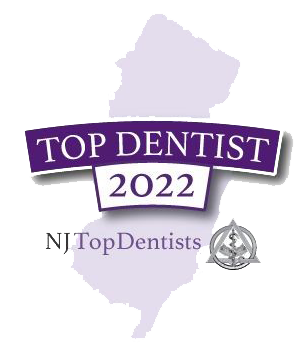
What to Do During a Headache Caused by a TMJ Disorder

When it comes to treating headaches, you need to understand the cause of your pain. A tension-type headache caused by excessive screen exposure will have a different solution than a migraine attack brought on by the smell of your coworker’s cinnamon bagel. Headaches related to TMJ disorders (TMD) require addressing the culprit: the temporomandibular joints (TMJs). A 2016 study in the Journal of Oral Science found that treating the TMJ disorder improved the frequency and severity of headaches.
At the Headache and TMJ Center of New Jersey, our neuromuscular dentists can help alleviate your TMJ disorder symptoms through a customized treatment plan.
TMJ Headache Vs. Headache Disorder
There are hundreds of types of headaches. TMJ-related headaches often come with face and jaw tenderness and sensitivity in the head or neck. You may experience a dull ache or throbbing pain, dizziness, light and sound sensitivities and vision disturbances. A TMJ headache may occur on one or both sides of your head and is often exacerbated by jaw movement, including teeth clenching. These headaches may happen after you’ve been smiling, laughing, chewing on something or simply talking.
It’s important to remember you could have a TMJ disorder and a separate headache disorder such as migraine disease or a form of trigeminal autonomic cephalalgia. Trigeminal neuralgia symptoms overlap with the signs of a TMJ-related headache. Your head pain may be linked to your TMJ if you have a misaligned bite, grind or clench your teeth and experience jaw popping, locking or clicking.
Pain Relief for TMJ-Related Headaches
TMJ headaches typically don’t respond well to the medications and treatments designed for migraine attacks because they’re caused by different mechanisms. Over-the-counter or prescription drugs may lessen the intensity of your head pain but won’t reduce how often you experience the headaches. If you have a diagnosed TMJ disorder or believe your jaw is the reason behind your painful symptoms, the Headache and TMJ Center of New Jersey can improve your headaches through personalized care for the neuromuscular condition.
Steps you can take at home to relieve your TMJ-related headache include:
- Take a nonsteroidal anti-inflammatory medication (NSAID) to reduce jaw and head pain, such as Aleve, Advil or Excedrin.
- Use your three middle fingers to massage your jaw in a circular motion on each side near your ear canal, where the temporomandibular joints are located.
- Icing the jaw with frozen vegetables or an ice pack may improve your symptoms.
- Practice jaw exercises, including moving the jaw side to side and toward your chin to loosen the joints.
- Work to reduce your anxiety and stress in everyday life to avoid added pressure on the jaw joints from teeth clenching or grinding.
- Identify triggers in your environment and lifestyle that may bring on TMJ headaches, such as chewing on pens or ice cubes and using your teeth as a tool to open challenging packages.
- Eat softer foods to give your jaw joints a break, such as mashed potatoes and steamed vegetables.
Schedule Your TMJ Evaluation in New Jersey
Our neuromuscular dentists understand the impact TMJ disorders can have on your life, including the severity and frequency of related headaches. We can pinpoint the issue causing your pain and provide effective treatment to alleviate your discomfort and improve jaw function.
Contact the Headache and TMJ Center of New Jersey today to schedule your evaluation with one of our skilled TMJ specialists.

